| Author |
 Topic Search Topic Search  Topic Options Topic Options
|
Jim Garten 
Special Collaborator

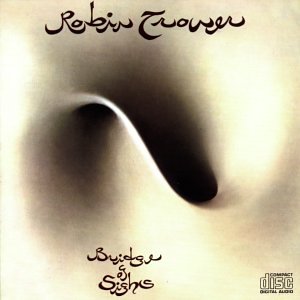
Retired Admin & Razor Guru
Joined: February 02 2004
Location: South England
Status: Offline
Points: 14693
|
 Topic: Uriah Heep Topic: Uriah Heep
Posted: September 28 2005 at 03:53 |
 Easy Livin wrote: Easy Livin wrote:
You're right about Hensley's solo albums....His "Time to time" collection has some interesting lost tracks, including some he recorded with members of Bad Company. |
Whereas those he recorded with Blackfoot deserved to be lost...  - I loved Blackfoot at the time and the thought of Hensley adding a screaming B3 to their sound was highly anticipated....
Not to be!
Does anyone like 'Siogo'? 
Edited by Jim Garten
|
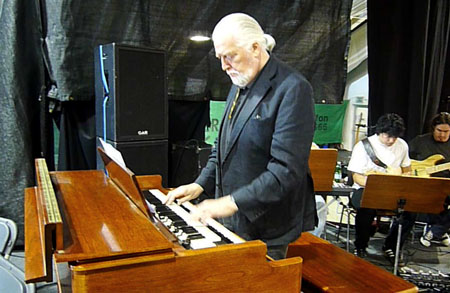
Jon Lord 1941 - 2012
|
 |
Fearless 
Forum Senior Member

Joined: July 11 2005
Location: United States
Status: Offline
Points: 442
|
 Posted: September 28 2005 at 00:53 Posted: September 28 2005 at 00:53 |
 Easy Livin wrote: Easy Livin wrote:
A track by Uriah Heep which deserves special mention is “Circle of hands”. This started life as the last track on side one of “Demons and Wizards”, initial impressions being that while it was a great number, it was a something of a clone of “July Morning” from the previous “Look at yourself” album. The structures of the songs are very similar, with a powerful opening burst leading to a soft vocal section and louder refrain, both tracks closing with a repeated instrumental theme. By this time, Ken Hensley was clearly writing with Byron’s style of vocal delivery upper most in his mind, the “Demons and Wizards” album as a whole finding the two of them in greater harmony than any other Uriah Heep album.
“Circle of hands” really began to take on a life of its own during the bands subsequent live performances, to the extent that by the time of the “Live ‘73” album (sometimes referred to as “Friday night in Birmingham”), it had arguably become the highlight of their act. The original version closed with a repeating slide guitar solo, which faded after a couple of minutes. The live version however was a complete transformation. David Byron gives one of his finest virtuoso vocal performances here. The closing slide guitar theme is repeated briefly before being picked up by Hensley on moog synthesiser, and developed into a magnificent solo. It should be remembered that at the time, only an handful of bands were using synthesisers successfully. Indeed, on the closing section of the studio version of “July Morning”, Manfred Man had been brought in to play the synth solo, Hensley at the time being unfamiliar with this new instrument.
The “moog” (as it was then commonly known) was still tricky to programme and use in a live environment, as evidenced by Hensley’s unscripted noises and audible asides to his roadie just before his solo on the preceding “Gypsy”. The sound he used for the solo on “Circle of hands” was still rather unusual for the time, with only artists such as Emerson and Wakeman really exploiting it commercially. As Hensley develops the theme, the band’s engine room of Lee Kerslake and Gary Thain picks up the pace, the synthesiser soaring to a screaming held note. Hensley pushes the synthesiser to even further heights while Kerslake pound out every beat of the rapidly increased rhythm on bass drum. The track climaxes in a wonderful cacophony of controlled chaos, forming the absolute pinnacle of the show.
It was interesting that Yes subsequently adopted a similar style of ending for “Starship trooper” some years later.
“Circle of hands” has remained a live favourite throughout the numerous line of changes of the band, the current long lasting line up also having included a version on their “Spellbinder” live album.
In 2001,Uriah Heep took the brave decision to turn off the power for an entire show. (Bear in mind their sound over the years has been based on the driving power of the Hammond organ, and the wailing wah-wah guitar of Mick Box, combined with volumes which could set off earthquakes in unstable regions.) The result was the astonishing “Acoustically driven” set, which consisted of unplugged versions of many of the band’s classic songs.
The closing number was a medley made up of “three tracks form “Demons and Wizards”, Paradise”, “The wizard” and of course “Circle of hands”. This version of “Circle of hands” sees a female vocal trio replacing David Byron’s “whoa, whoa” refrains, before the slide guitar theme is picked up, this time by uillean pipes. The pipes are backed by sympathetic instrumentation, including acoustic guitar and acoustic bass. Here, the sound does not build to a crescendo, instead, the backing subsides to leave only the unaccompanied pipes replicating the original slide guitar theme. On the DVD of the gig, Mick Box sits motionless, eyes shut, mesmerised by the sheer beauty of the sound. It is clear this is a highly emotional moment for him. Here is a song he was a key part of during its birth, and over 30 years later he is leading a performance of it which is completely different, yet utterly magical. As the final note on the pipes is held, then abruptly stops, ending the gig, there is a momentary silence. It is as if both band and audience are reluctant to break the spell first through their applause. Inevitably though, that reaction manifests itself, as the need to recognise the performance overwhelms the futile hope that a single moment could last forever.
One of the things which really makes “Circle of hands” special is the complete contrast between the “Live 73” version, and the “Acoustically driven” rendition. There is no question that we are listening to the same song, yet on the former it is one of the most bombastic, musically aggressive performances ever witnessed. On the latter though, the melody is brought to the fore like never before, and the song becomes a piece of pure beauty.
I find listening to the two live versions of this song I have highlighted to be truly inspirational. After playing the “Live ‘73” version, I am physically exhausted. The volume has been pushed to 11, and the foundations of the house dislodged yet again. Conversely, the “Acoustically driven” version raises the hairs on the back of my neck, my throat dries, and I avoid speaking for fear of a stray faltering of my voice revealing the overwhelming emotion I am experiencing.
The song may have been written by Ken Hensley, but it is the band members past and present collectively who deserve the credit for all it has since become.
“We must sacrifice, the future has its price, and today is only yesterday’s tomorrow.”
|

Excellently put. I have to give "Acoustically Driven" a try.
Now I'm in the mood to go listen to some Heep.  Thanks Easy Livin. Thanks Easy Livin.
Edited by Fearless
|
|
If you don't stand up
You don't stand a chance!
|
 |
Fragile 
Forum Senior Member


Joined: June 27 2004
Location: Scotland
Status: Offline
Points: 1125
|
 Posted: September 27 2005 at 19:17 Posted: September 27 2005 at 19:17 |
For those who cannot begin to understand the importance this magnificent band has had on alot of lives I will try to explain it as best as I can.At the start of 4th year in high school the music scene went mushroom.It was the most exciting of times.Purple were there as were Sabbath and Zeppelin.Free were stomping up the charts.Grand Funk were flying the American flag.Tull were charting and Prog's giants were flexing their muscles but still hadn't assailed my ears at the time.Every other day somebody in the schoolyard had a new band that they had discovered.Wishbone had to be heard or it was the Groundhogs or Budgie.Me and friends were buying albums for fun then I saw this awesome album cover and I instinctly knew that this was going to be good.The album was ' Very Heavy Very Humble.It wasn't good it was bloody amazing.When I first heard Byron singing I was in vocal heaven.Vocals mean more to me than anything else in a band.From the pulsating ' Gypsy' to the emotions of 'Come away Melinda' and ' Walking in your Shadow and Dreamare' I was hooked and was for years through Salisbury Look at Yourself and the truly superb ' Demons and wizards.' In betwen I had discovered Prog huge style and gorged myself on all that I could hear.I love rock music in all it's formats but Prog had taken possession and it has throughout 35 years but Uriah Heep are deeply etched in my heart and always will be.Some of you on here will wonder at the adoration some of us have for this band.But when your sixteen years old and have just watched Byron delivering ' Gypsy ' live and watched Hensley grappling with the Hammond from only six feet away then they produce a concert you will never forget then perhaps if you are music lovers you can begin to understand why they mean so much.
Easy Livin great post about ' Circle of Hands'
|
 |
Easy Livin 
Special Collaborator

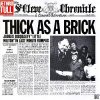
Honorary Collaborator / Retired Admin
Joined: February 21 2004
Location: Scotland
Status: Offline
Points: 15585
|
 Posted: September 27 2005 at 16:49 Posted: September 27 2005 at 16:49 |
Thanks Salmacis. Your'e right about them losing their way for a while, but it's great to see them in such superb form again now. They;re coming to Glasgow in November!
You're right about Hensley's solo albums. "Proud words" was quite Heep like, I believe the title referred to the fact that many of the tracks had been considered for use by the band, but not used. "Eager to please" was much more individual. I loved "Stargazer" on that album, with it's big brass sound.
His "Time to time" collection has some interesting lost tracks, including some he recorded with members of Bad Company.
|
 |
Progger 
Forum Senior Member


Joined: April 26 2005
Status: Offline
Points: 1188
|
 Posted: September 27 2005 at 14:42 Posted: September 27 2005 at 14:42 |
 salmacis wrote: salmacis wrote:
Any Heep fans familiar with Ken Hensley's solo albums like 'Proud Words On A Dusty Shelf' and 'Eager To Please'? They aren't especially Heep esque really, but reveal Ken to be one of the finest songwriters Britain ever produced.
|
His last album 'The Last Dance' has Heep written all over it. It's easy to imagine David Byron singing those songs! Worth checking out!!!
|
 |
salmacis 
Forum Senior Member

Content Addition
Joined: April 10 2005
Status: Offline
Points: 3928
|
 Posted: September 27 2005 at 13:12 Posted: September 27 2005 at 13:12 |
Great post Easy Livin', but I'd say that for a while, Heep were somewhat lost without Ken Hensley when he left after 'Conquest'. This is reflected in songs like 'Rockerama', 'Stay On Top' and 'Bad Blood', that are probably the poorest the band ever made. Happily, they've improved with every album on the songwriting front since 'Raging Silence', the strength of songs like 'The Golden Palace', 'Different World' and 'Cross That Line' clear to see on the 'Acoustically Driven' project, as these songs matched Hensley's work in every way.
Edited by salmacis - January 27 2009 at 12:53
|
 |
uriah561 
Forum Newbie


Joined: September 12 2005
Location: United States
Status: Offline
Points: 14
|
 Posted: September 27 2005 at 12:59 Posted: September 27 2005 at 12:59 |
Why do you think I picked Uriah561 as my nick. I love them! The 70-73 period is the best with Gypsy, Look At Yourself, Bird Of Prey, and Lady In Black. They're freakin' awesome. 
|
|
Robert G.
Chicago, Illinois
|
 |
Progger 
Forum Senior Member


Joined: April 26 2005
Status: Offline
Points: 1188
|
 Posted: September 27 2005 at 12:18 Posted: September 27 2005 at 12:18 |
 Mnemosyne wrote: Mnemosyne wrote:
Heep is a great band, and it is Prog, that's why (fortunately) this band is in the archives... and, yeah, there's no point in comparing them to Deep Purple |

Heep are in the all time top 10 prog bands in my estimation!
|
 |
Mnemosyne 
Forum Senior Member

Joined: August 26 2005
Location: Mexico
Status: Offline
Points: 272
|
 Posted: September 27 2005 at 10:25 Posted: September 27 2005 at 10:25 |
|
Heep is a great band, and it is Prog, that's why (fortunately) this band is in the archives... and, yeah, there's no point in comparing them to Deep Purple
|
|
I'm a Man-Owl-Fish.
Creator-Observer-Muse.
|
 |
Ray Lomas 
Forum Senior Member


Joined: August 11 2005
Location: Finland
Status: Offline
Points: 187
|
 Posted: September 27 2005 at 07:32 Posted: September 27 2005 at 07:32 |
Hahaha  
I just wanted to say that I really love the Heep too! They are one of the my favourite bands ever.  Byron's vocals to me are one of the most touching, like on songs like Come Away Melinda. 
I think also that there is no point in comparing them to Deep Purple, since they are quite different bands after all.
BTW I'm writing this with my Uriah Heep t-shirt on. 
|
 |
Eetu Pellonpaa 
Special Collaborator

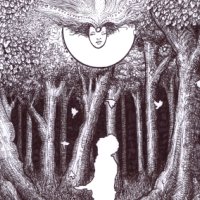
Honorary Collaborator
Joined: June 17 2005
Location: Finland
Status: Offline
Points: 4828
|
 Posted: September 27 2005 at 06:58 Posted: September 27 2005 at 06:58 |
|
|
 |
Rob The Good 
Forum Senior Member


Joined: December 17 2004
Location: New Zealand
Status: Offline
Points: 476
|
 Posted: September 27 2005 at 05:05 Posted: September 27 2005 at 05:05 |
Yes! "Live 1973" is definitely one of the greatest live albums of the 70s IMO.
'Circle of Hands' is one of the highlights, and has so much energy, but my favourite part has got to be the incredible opening of 'Sunrise'....what a way to start the show! 
|
|
And Jesus said unto John, "come forth and receive eternal life..."
Unfortunately, John came fifth and was stuck with a toaster.
|
 |
Trotsky 
Special Collaborator


Honorary Collaborator
Joined: October 25 2004
Location: Malaysia
Status: Offline
Points: 2785
|
 Posted: September 27 2005 at 04:14 Posted: September 27 2005 at 04:14 |
 Easy Livin wrote: Easy Livin wrote:
A track by Uriah Heep which deserves special mention is “Circle of hands”. This started life as the last track on side one of “Demons and Wizards”, initial impressions being that while it was a great number, it was a something of a clone of “July Morning” from the previous “Look at yourself” album. The structures of the songs are very similar, with a powerful opening burst leading to a soft vocal section and louder refrain, both tracks closing with a repeated instrumental theme. By this time, Ken Hensley was clearly writing with Byron’s style of vocal delivery upper most in his mind, the “Demons and Wizards” album as a whole finding the two of them in greater harmony than any other Uriah Heep album.
“Circle of hands” really began to take on a life of its own during the bands subsequent live performances, to the extent that by the time of the “Live ‘73” album (sometimes referred to as “Friday night in Birmingham”), it had arguably become the highlight of their act. The original version closed with a repeating slide guitar solo, which faded after a couple of minutes. The live version however was a complete transformation. David Byron gives one of his finest virtuoso vocal performances here. The closing slide guitar theme is repeated briefly before being picked up by Hensley on moog synthesiser, and developed into a magnificent solo. It should be remembered that at the time, only an handful of bands were using synthesisers successfully. Indeed, on the closing section of the studio version of “July Morning”, Manfred Man had been brought in to play the synth solo, Hensley at the time being unfamiliar with this new instrument.
The “moog” (as it was then commonly known) was still tricky to programme and use in a live environment, as evidenced by Hensley’s unscripted noises and audible asides to his roadie just before his solo on the preceding “Gypsy”. The sound he used for the solo on “Circle of hands” was still rather unusual for the time, with only artists such as Emerson and Wakeman really exploiting it commercially. As Hensley develops the theme, the band’s engine room of Lee Kerslake and Gary Thain picks up the pace, the synthesiser soaring to a screaming held note. Hensley pushes the synthesiser to even further heights while Kerslake pound out every beat of the rapidly increased rhythm on bass drum. The track climaxes in a wonderful cacophony of controlled chaos, forming the absolute pinnacle of the show.
It was interesting that Yes subsequently adopted a similar style of ending for “Starship trooper” some years later.
“Circle of hands” has remained a live favourite throughout the numerous line of changes of the band, the current long lasting line up also having included a version on their “Spellbinder” live album.
In 2001,Uriah Heep took the brave decision to turn off the power for an entire show. (Bear in mind their sound over the years has been based on the driving power of the Hammond organ, and the wailing wah-wah guitar of Mick Box, combined with volumes which could set off earthquakes in unstable regions.) The result was the astonishing “Acoustically driven” set, which consisted of unplugged versions of many of the band’s classic songs.
The closing number was a medley made up of “three tracks form “Demons and Wizards”, Paradise”, “The wizard” and of course “Circle of hands”. This version of “Circle of hands” sees a female vocal trio replacing David Byron’s “whoa, whoa” refrains, before the slide guitar theme is picked up, this time by uillean pipes. The pipes are backed by sympathetic instrumentation, including acoustic guitar and acoustic bass. Here, the sound does not build to a crescendo, instead, the backing subsides to leave only the unaccompanied pipes replicating the original slide guitar theme. On the DVD of the gig, Mick Box sits motionless, eyes shut, mesmerised by the sheer beauty of the sound. It is clear this is a highly emotional moment for him. Here is a song he was a key part of during its birth, and over 30 years later he is leading a performance of it which is completely different, yet utterly magical. As the final note on the pipes is held, then abruptly stops, ending the gig, there is a momentary silence. It is as if both band and audience are reluctant to break the spell first through their applause. Inevitably though, that reaction manifests itself, as the need to recognise the performance overwhelms the futile hope that a single moment could last forever.
One of the things which really makes “Circle of hands” special is the complete contrast between the “Live 73” version, and the “Acoustically driven” rendition. There is no question that we are listening to the same song, yet on the former it is one of the most bombastic, musically aggressive performances ever witnessed. On the latter though, the melody is brought to the fore like never before, and the song becomes a piece of pure beauty.
I find listening to the two live versions of this song I have highlighted to be truly inspirational. After playing the “Live ‘73” version, I am physically exhausted. The volume has been pushed to 11, and the foundations of the house dislodged yet again. Conversely, the “Acoustically driven” version raises the hairs on the back of my neck, my throat dries, and I avoid speaking for fear of a stray faltering of my voice revealing the overwhelming emotion I am experiencing.
The song may have been written by Ken Hensley, but it is the band members past and present collectively who deserve the credit for all it has since become.
“We must sacrifice, the future has its price, and today is only yesterday’s tomorrow.”
|
  
|
|
"Death to Utopia! Death to faith! Death to love! Death to hope?" thunders the 20th century. "Surrender, you pathetic dreamer.”
"No" replies the unhumbled optimist "You are only the present."
|
 |
pero 
Forum Senior Member

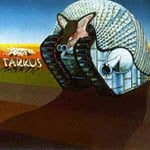
Joined: July 11 2005
Location: Croatia
Status: Offline
Points: 1242
|
 Posted: September 27 2005 at 03:40 Posted: September 27 2005 at 03:40 |
Uriah heep live 1973 is their best
They are fun but the place on the prog list is abut 47.
|
 |
Perrin 
Forum Newbie

Joined: September 19 2005
Status: Offline
Points: 12
|
 Posted: September 26 2005 at 09:20 Posted: September 26 2005 at 09:20 |
Bleah! I like them on "Salisbury", "Look at yourself" is on the border, the rest is just beyond me!  They don't really know how to rock! Not exciting!
|
 |
gulliman 
Forum Senior Member


Joined: July 02 2005
Location: Estonia
Status: Offline
Points: 126
|
 Posted: September 26 2005 at 08:54 Posted: September 26 2005 at 08:54 |
 Rob The Plant wrote: Rob The Plant wrote:
Uriah Heep are the greatest prog band in history... |
... and the most overrated one among their fans. 
|
 |
Easy Livin 
Special Collaborator


Honorary Collaborator / Retired Admin
Joined: February 21 2004
Location: Scotland
Status: Offline
Points: 15585
|
 Posted: September 26 2005 at 08:51 Posted: September 26 2005 at 08:51 |
A track by Uriah Heep which deserves special mention is “Circle of hands”. This started life as the last track on side one of “Demons and Wizards”, initial impressions being that while it was a great number, it was a something of a clone of “July Morning” from the previous “Look at yourself” album. The structures of the songs are very similar, with a powerful opening burst leading to a soft vocal section and louder refrain, both tracks closing with a repeated instrumental theme. By this time, Ken Hensley was clearly writing with Byron’s style of vocal delivery upper most in his mind, the “Demons and Wizards” album as a whole finding the two of them in greater harmony than any other Uriah Heep album.
“Circle of hands” really began to take on a life of its own during the bands subsequent live performances, to the extent that by the time of the “Live ‘73” album (sometimes referred to as “Friday night in Birmingham”), it had arguably become the highlight of their act. The original version closed with a repeating slide guitar solo, which faded after a couple of minutes. The live version however was a complete transformation. David Byron gives one of his finest virtuoso vocal performances here. The closing slide guitar theme is repeated briefly before being picked up by Hensley on moog synthesiser, and developed into a magnificent solo. It should be remembered that at the time, only an handful of bands were using synthesisers successfully. Indeed, on the closing section of the studio version of “July Morning”, Manfred Man had been brought in to play the synth solo, Hensley at the time being unfamiliar with this new instrument.
The “moog” (as it was then commonly known) was still tricky to programme and use in a live environment, as evidenced by Hensley’s unscripted noises and audible asides to his roadie just before his solo on the preceding “Gypsy”. The sound he used for the solo on “Circle of hands” was still rather unusual for the time, with only artists such as Emerson and Wakeman really exploiting it commercially. As Hensley develops the theme, the band’s engine room of Lee Kerslake and Gary Thain picks up the pace, the synthesiser soaring to a screaming held note. Hensley pushes the synthesiser to even further heights while Kerslake pound out every beat of the rapidly increased rhythm on bass drum. The track climaxes in a wonderful cacophony of controlled chaos, forming the absolute pinnacle of the show.
It was interesting that Yes subsequently adopted a similar style of ending for “Starship trooper” some years later.
“Circle of hands” has remained a live favourite throughout the numerous line of changes of the band, the current long lasting line up also having included a version on their “Spellbinder” live album.
In 2001,Uriah Heep took the brave decision to turn off the power for an entire show. (Bear in mind their sound over the years has been based on the driving power of the Hammond organ, and the wailing wah-wah guitar of Mick Box, combined with volumes which could set off earthquakes in unstable regions.) The result was the astonishing “Acoustically driven” set, which consisted of unplugged versions of many of the band’s classic songs.
The closing number was a medley made up of “three tracks form “Demons and Wizards”, Paradise”, “The wizard” and of course “Circle of hands”. This version of “Circle of hands” sees a female vocal trio replacing David Byron’s “whoa, whoa” refrains, before the slide guitar theme is picked up, this time by uillean pipes. The pipes are backed by sympathetic instrumentation, including acoustic guitar and acoustic bass. Here, the sound does not build to a crescendo, instead, the backing subsides to leave only the unaccompanied pipes replicating the original slide guitar theme. On the DVD of the gig, Mick Box sits motionless, eyes shut, mesmerised by the sheer beauty of the sound. It is clear this is a highly emotional moment for him. Here is a song he was a key part of during its birth, and over 30 years later he is leading a performance of it which is completely different, yet utterly magical. As the final note on the pipes is held, then abruptly stops, ending the gig, there is a momentary silence. It is as if both band and audience are reluctant to break the spell first through their applause. Inevitably though, that reaction manifests itself, as the need to recognise the performance overwhelms the futile hope that a single moment could last forever.
One of the things which really makes “Circle of hands” special is the complete contrast between the “Live 73” version, and the “Acoustically driven” rendition. There is no question that we are listening to the same song, yet on the former it is one of the most bombastic, musically aggressive performances ever witnessed. On the latter though, the melody is brought to the fore like never before, and the song becomes a piece of pure beauty.
I find listening to the two live versions of this song I have highlighted to be truly inspirational. After playing the “Live ‘73” version, I am physically exhausted. The volume has been pushed to 11, and the foundations of the house dislodged yet again. Conversely, the “Acoustically driven” version raises the hairs on the back of my neck, my throat dries, and I avoid speaking for fear of a stray faltering of my voice revealing the overwhelming emotion I am experiencing.
The song may have been written by Ken Hensley, but it is the band members past and present collectively who deserve the credit for all it has since become.
“We must sacrifice, the future has its price, and today is only yesterday’s tomorrow.”
|
 |
Ivan_Melgar_M 
Special Collaborator

Honorary Collaborator
Joined: April 27 2004
Location: Peru
Status: Offline
Points: 19557
|
 Posted: July 20 2005 at 23:28 Posted: July 20 2005 at 23:28 |
 DeathRow wrote: DeathRow wrote:
 BaldFriede wrote: BaldFriede wrote:
Has anybody noticed that David Byron goes "ooh" or "aah" or sometimes "ooh-aah" at least once in every single song on Salisbury? Check it, if you don't believe it. |
Doesn't he do so on every single song in the Uriah Heep catalogue he was a part of. LOL
It was one of their trademarks, together with the WahWah sound of mick Box, and the heavy distorted dirty organ sound of Ken Hensley. :) |
You're right Death Row, that was a Byron trade mark, but his probably one of the few vocalist that could change so fast from low and more mysterious ranges to dramatic high ones.
Just watched a DVD taken from the black live album and the guy didn't had to make any effort, he was really good.
Iván
|
|
|
 |
DeathRow 
Forum Newbie

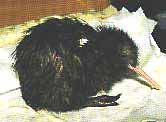
Joined: February 01 2005
Status: Offline
Points: 38
|
 Posted: July 20 2005 at 14:57 Posted: July 20 2005 at 14:57 |
 BaldFriede wrote: BaldFriede wrote:
Has anybody noticed that David Byron goes "ooh" or "aah" or sometimes "ooh-aah" at least once in every single song on Salisbury? Check it, if you don't believe it. |
Doesn't he do so on every single song in the Uriah Heep catalogue he was a part of. LOL
It was one of their trademarks, together with the WahWah sound of mick Box, and the heavy distorted dirty organ sound of Ken Hensley. :)
|
|
PEACE OUT
|
 |
BaldFriede 
Prog Reviewer

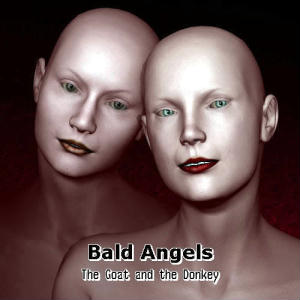
Joined: June 02 2005
Location: Germany
Status: Offline
Points: 10266
|
 Posted: July 20 2005 at 13:42 Posted: July 20 2005 at 13:42 |
|
Has anybody noticed that David Byron goes "ooh" or "aah" or sometimes "ooh-aah" at least once in every single song on Salisbury? Check it, if you don't believe it.
|
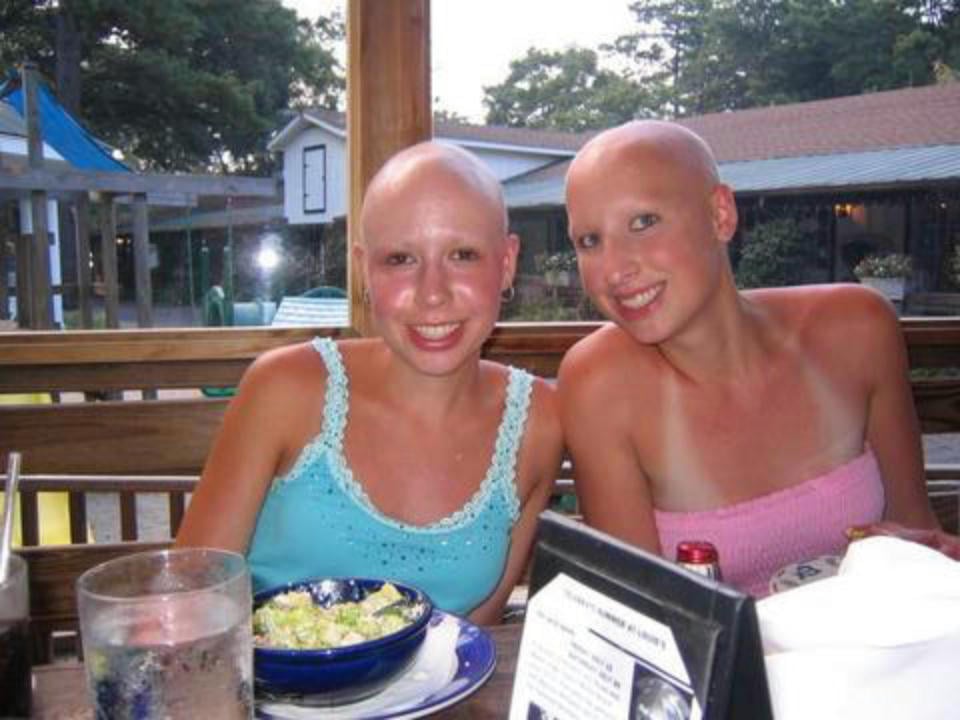 BaldJean and I; I am the one in blue.
|
 |
/PAlogo_v2.gif)
/PAlogo_v2.gif)


